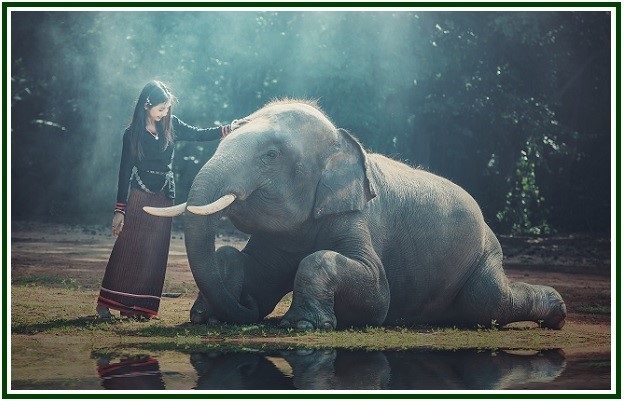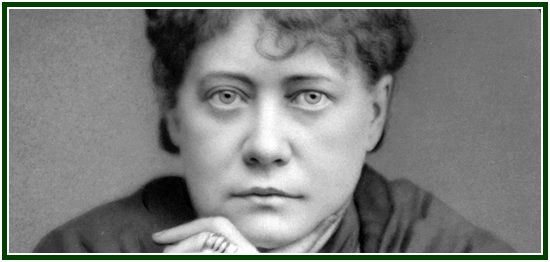
Every Man Can Learn to Transcend
The Instinctive Mental Region Within Him
Yogi Ramacharaka

As Life advanced in the scale and animal forms appeared on the scene new planes of mind were unfolded, in accordance to the necessity of the living forms.
The animal was compelled to hunt for his food – to prey upon other forms, and to avoid being preyed upon by others. He was compelled to struggle for the unfoldment of latent powers of his mind that would give him means to play his part in the scheme of life.
He was compelled to do certain things in order to live and reproduce his kind. And he demanded not in vain. For there came to him slowly an unfolding knowledge of the things necessary for the requirements of his life. We call this Instinct. But, pray remember, by Instinct we do not mean the still higher something that is really rudimentary Intellect that we notice in the higher animals. We are speaking now of the unreasoning instinct observed in the lower animals, and to a certain degree in man. [It is ] this Instinctive plane of mentality [which] causes the bird to build its nest before its eggs are laid, which instructs the animal mother how to care for its young when born, and after birth; which teaches the bee to construct its cell and to store up its honey. [1]
These and countless other things in animal life, and in the higher form of plant life, are manifestations of Instinct – that great plane of the mind. In fact, the greater part of the life of the animal is instinctive, although the higher forms of animals have developed something like rudimentary Intellect or Reason, which enables them to meet new conditions where Intellect alone fails them.
And man has this plane of mind within him, below consciousness. In fact the lower forms of human life manifest but little Intellect, and live almost altogether according to their Instinctive impulses and desires.
Every man has this Instinctive mental region within him and from it are constantly arising impulses and desires to perplex and annoy him, as well as to serve him occasionally. The whole secret consists in whether the man has Mastery of his lower self or not.
From this plane of the mind arise the hereditary impulses coming down from generations of ancestors, reaching back to the cavemen, and still further back into the animal kingdom. A queer storehouse is this. Animal instincts – passions, appetites, desires, feelings, sensations, emotions, etc., are there. Hate, envy, jealousy, revenge, the lust of the animal seeking the gratification of his sexual impulses, etc., etc., are there, and are constantly intruding upon our attention until we have asserted our mastery. And often the failure to assert this mastery comes from an ignorance of the nature of the desire, etc. We have been taught that these thoughts were “bad” without being told why, and we have feared them and thought them the promptings of an impure nature, or a depraved mind, etc. This is all wrong. These things are not “bad” of themselves – they came to us honestly – they are our heritage from the past. They belong to the animal part of our nature, and were necessary to the animal in his stage of development. We have the whole menagerie within us, but that does not mean that we should turn the beasts loose upon ourselves or others. It was necessary for the animal to be fierce, full of fight, passionate, regardless of the rights of others, etc., but we have outgrown that stage of development, and it is ignoble for us to return to it, or to allow it to master us.
This lesson is not intended as a discourse upon Ethics or morals. We do not intend going into a discussion of the details of “Right and Wrong”, for we have touched upon that phase of the subject in other works. But we feel justified in calling your attention to the fact that the human mind intuitively recognizes the “Rightness” of the living up to that which comes to us from the highest parts of the mind – the highest product of our unfoldment. And it likewise intuitively recognizes the “Wrongness” of the falling back into that which belongs to the lower stages of our mentality – to the animal part of us, that is our heritage from the past and that which has gone before.
While we may be puzzled about many details of morals and ethics and may not be able to “explain” why we consider certain things right or wrong, we still intuitively feel that the highest “Right” of which we are capable is the acting out of that which is coming to us from the highest pole of our mental being, and that the lowest “Wrong” consists in doing that which carries us back to the life of the lower animals, in so far as mentality is concerned. Not because there is anything absolutely “Wrong” in the mental processes and consequent of the animals in themselves – they are all right and perfectly natural in the animals – but we intuitively recognize that for us to fall back to the animal stage is a “going backward” in the scale of evolution. We intuitively shrink at an exhibition of brutality and animality on the part of a man or woman. We may not know just why, but a little reflection will show us that it is a sinking in the evolutionary scale, against which the spiritual part of us revolts and protests.
But this must not be construed to mean that the advanced soul looks upon the animal world with disgust or horror. On the contrary, there is nowhere to be found a higher respect for animal life and being than among the Yogi and other advanced souls. They delight in watching the animals filling their places in life – playing out their parts in the divine scheme of life. Their animal passions and desires are actions viewed sympathetically and lovingly by the advanced soul, and nothing “Wrong” or disgusting is seen there.
NOTE:
[1] We have inserted the words “it is” and “which” within brackets in beginning of this sentence in order to make it easier to understand. (CCA)
000
The above text was published in the associated websites on 5 June 2021. It is was reproduced from the book “Raja Yoga or Mental Development”, by Yogi Ramacharaka, The Yogi Publication Society, Chicago, USA, 298 pp., pp. 203-207. It is also part of the March 2013 edition of “The Aquarian Theosophist”.
000

Helena Blavatsky (photo) wrote these words: “Deserve, then desire”.
000